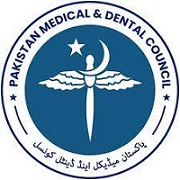AN EFFECTIVE MANAGEMENT OF BIPOLAR DISORDER: A CLINICAL CASE STUDY
Abstract
Bipolar disorder is characterized by manic, hypo-manic and depressive episodes. This case study describes how psychosocial factors lead to psychological illnesses, which then impairs individual’s social, occupational and other areas of functioning. The client H.K. was 22 years old boy, unmarried, educated up to middle, was 2nd born among 3 siblings and lived in a nuclear family. He was brought to the Lahore general hospital by the end of May, 2019 with the presenting complaints of self talk, labile mood, forgetfulness, poor sleep and appetite, flight of ideas and anger. Informal assessment was done through behavioral observations, mental status observation, clinical interview, baseline charts, and subjective rating of symptoms. Formal assessment was done through positive and negative syndrome scale, young’s mania rating scale, and beck’s depression inventory. The client was diagnosed with bipolar I disorder according to DSM 5. It took 12 sessions to manage client’s symptoms and Deep Breathing, Progressive Muscle Relaxation, Peripheral Questioning, Energy Channelization, Mood Monitoring etc. were used for this purpose. The client reported overall improvement of 80 % in his symptoms after therapeutic intervention.






